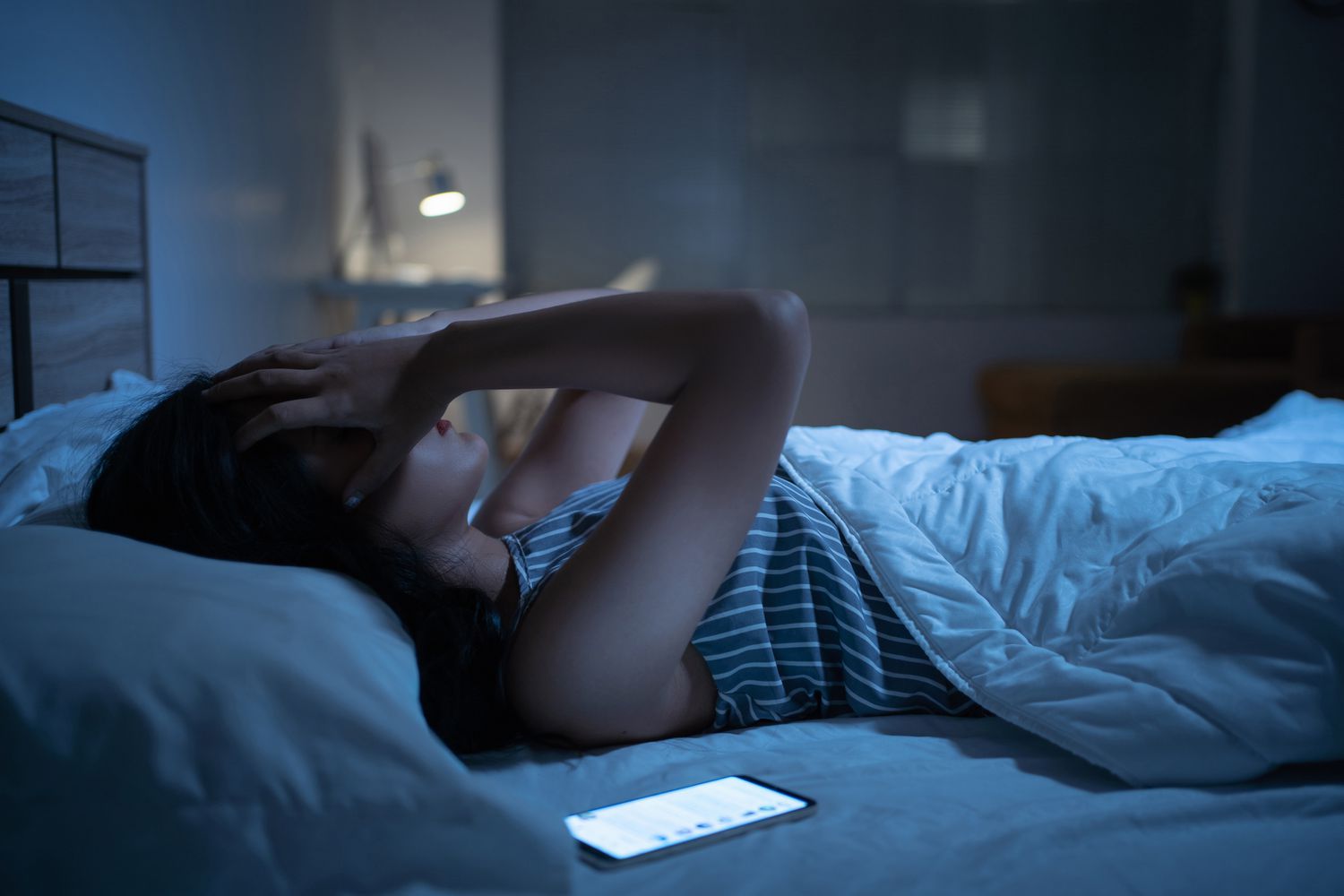"Chronic Insomnia Impacts 12% of Americans—Learn How to Identify the Signs"

Being unable to fall and stay asleep is a frustrating situation for anyone—but a new survey suggests 12% of Americans are struggling with chronic insomnia, or long-term, persistent sleep issues.
According to a new survey conducted by the American Academy of Sleep Medicine (AASM), 12% of Americans say they have been diagnosed with chronic insomnia. The survey of 2,006 adults was conducted online between May 16 and May 24, and was published on June 14.
The results of the survey showed that men were slightly more likely to have been diagnosed with chronic insomnia as compared to women. Diagnoses were also most prevalent in people ages 25 to 44.
Chronic insomnia is a serious sleep issue—not only can this disorder lead to sleep deprivation, but it can also cause fatigue, low energy, and impact a person’s physical and emotional health. In fact, chronic insomnia has been linked to depression, anxiety, Alzheimer’s disease, and type 2 diabetes, among other health issues.
With chronic insomnia being a significant (and relatively common) health threat, how can you tell if you have this disorder, or you’re simply dealing with garden-variety sleeping troubles?
Here’s what experts had to say about how to identify chronic insomnia, why some people develop the disorder, and what it takes to get properly diagnosed and treated.
In general, insomnia is a condition in which a person has difficulty falling asleep or staying asleep, or regularly wakes up earlier than they want to, even though they are allowing enough time in bed for sleep, said AASM spokesperson Indira Gurubhagavatula, MD, MPH, director of the sleep medicine fellowship and professor of sleep medicine at the University of Pennsylvania Perelman School of Medicine.
“Lots of people have what’s called acute insomnia, or ‘adjustment’ insomnia, usually in response to a stressful situation,” Gurubhagavatula told Health.
Stress, anxiety, or worrying can actually play a role in disrupting a person’s circadian rhythm, which explains its connection to insomnia, added Nathan Baumann, PhD, clinical psychologist and sleep disorder expert at South Psychology in Colorado.
“One important component of sleep is our circadian rhythm, which is the cycle of energy and rest that our body experiences daily,” Baumann told Health. “When it is interrupted, it can lead to long-term disruptions.”
Acute insomnia “may last for a few days or even weeks,” said Gurubhagavatula. “The symptoms usually resolve after the person deals with the stress, or the source of the stress goes away.”
Sometimes, though, the insomnia does not go away. Insomnia can become “chronic” if it lasts for three months or longer, and occurs at least three times a week, Gurubhagavatula said. You also could have chronic insomnia if these bouts of sleeplessness last for less than three months, but keep coming back continually over a period of months or years.
“[A person could even have chronic insomnia if they] take medications chronically to fall asleep and feel they just cannot sleep without the aid of sleeping pills,” she added.
This type of insomnia usually affects multiple areas of a person’s daily life. Beyond just difficulty falling or staying asleep, Gurubhagavatula said, those with chronic insomnia might experience the following:
To be diagnosed with chronic insomnia, your sleep challenges must rise to the level of causing significant distress or impairment in your social relationships, work, education, or other important areas of functioning, said Baumann.
In addition to happening multiple nights a week over a period of several months, “these disruptions [also] must not be better explained by another sleep disorder or a substance use episode,” he explained.
To determine if you have diagnosable chronic insomnia, take stock of and monitor your sleep issues, said Shmaya Krinsky, PsyD, a licensed psychologist and founder of Anxiety and Behavioral Health Psychotherapy in New York.
Krinsky said people should watch for the following symptoms:
“If these symptoms are persistent, it is advisable to consult a healthcare professional, typically a primary care physician or a sleep specialist,” Krinsky told Health. “They can rule out other medical or psychological conditions that may be causing the symptoms.”
A doctor might do this by looking through your medical history, doing a physical exam, asking you to keep a sleep diary, or doing polysomnography, he explained.
Though chronic insomnia can seriously impact a person's health and well-being, there are treatment options available.
According to the AASM, the most effective treatment for chronic insomnia is cognitive behavioral therapy for insomnia (CBT-I).




